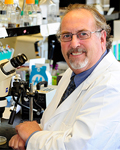Diversifying the Pipeline
This panel will highlight summer (Paul) and pipeline programs’ (Davies) purposes and successes in enhancing diversity in neuroscience, as well as the best practices in evaluating candidates, ultimately making the search for excellence in neuroscience trainees more inclusive. This session will also identify what we should and should not be including in our metrics of evaluation to avoid bias (Maldonado-Vlaar).
Speakers

Ketema Paul, PhD
Ketema Paul is a professor in the department of integrative biology and physiology at the University of California, Los Angeles. He studies the genetic, molecular, and neural underpinnings of sleep. His primary interests are comprised of uncovering the mechanisms responsible for the negative effects of sleep deprivation. He also probes the origins of gender/sex differences in the ability to recover from sleep loss in order to develop therapeutic targets for sleep disorders that disproportionately affect women. Paul’s work has shown sex differences in daily sleep amount are dependent on circulating reproductive hormones, while sex differences in the ability to recover from sleep loss are relatively insensitive to them. His current research involves applying a forward genetics approach to uncover the core genes responsible for sleep-wake regulation and the impairing effects of sleep loss. Effective treatments for common sleep-wake disorders are elusive. Paul conducts a forward genetics approach to facilitate gene identification that takes advantage of natural variation occurring in sleep-replete and sleep-deprived mice. This approach applies the most cutting-edge genome mapping, positional cloning, and DNA sequencing techniques to identify the genetic origins of unique sleep phenotypes in transgenic mouse models. These studies are expected to identify novel sleep regulatory genes and lead to the development of new therapeutic targets and improved treatments for sleep disorders.

Carmen S. Maldonado-Vlaar, PhD
Carmen Maldonado-Vlaar, PhD, is a professor at the University of Puerto Rico-Rio Piedras. She received her PhD in behavioral neuroscience from Northeastern University and continued with postdoc training at The Scripps Research Institute in the neuropharmacology department. Maldonado-Vlaar has been a faculty member of the biology department at the University of Puerto Rico-Rio Piedras for 27 years. She has successfully mentored dozens of undergraduate and graduate students from underrepresented minorities (URM) in the field of neuroscience. Her research focus is finding and characterizing potential therapeutic cellular targets that are important in cocaine addiction treatment and other mental disorders.

Daryl Davies, PhD
Daryl Davies is a professor in the Titus Family Department of Clinical Pharmacy and director of the Master’s program in management of drug development in the department of regulatory and quality sciences at the School of Pharmacy at the University of Southern California (USC). Davies is also the director of undergraduate education at the School of Pharmacy, where he has taken the lead role in the development and management of the school's first undergraduate major, pharmacology and drug development, and a new minor, science and management of biomedical therapeutics. He is also the undergraduate faculty adviser for the School of Pharmacy Trojan Admission Pre-Pharmacy (TAP) program and director of the STAR program, a cooperative venture in science education between the USC’s Health Sciences Campus and Francisco Bravo Medical Magnet High School in East Los Angeles. In addition to his educational activities, Davies leads a research team at USC, where his laboratory is working to discover and develop novel therapeutics for the treatment of neurodegenerative diseases and alcoholism. He is considered a pioneer by his peers in the field of purinergic receptors and their role in CNS regulation of alcohol-induced changes in alcohol intake and signaling. Davies is a firm believer in using an interdisciplinary approach. To this end, his group works with a team of collaborators who use a combination of pharmacological, toxicological, electrophysiological, molecular, computational chemistry, molecular modeling, and regulatory expertise to discover and develop new drugs.
4 of 5 articles left
Login
or
Become a Member
to unlock content


.png?h=1763&w=3125&la=en&hash=B2439C2768576BED6405672E5CD5CF8CB1AA375F)




